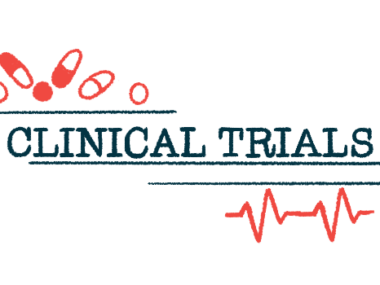Hepatitis D treatment combo granted new designations in US, EU
Phase 3 ECLIPSE program for tobevibart-elebsiran to begin in first half of 2025
Written by |

Tobevibart and elebsiran, an experimental treatment combination that Vir Biotechnology is developing for chronic hepatitis D, has been awarded both breakthrough therapy designation by the U.S. Food and Drug Administration (FDA) and priority medicines (PRIME) designation by the European Medicines Agency (EMA).
Both of these designations are intended to speed the development and review of investigational therapies that show potential to address an unmet medical need and offer benefit over existing therapies.
Developers are offered enhanced communication with the respective regulatory agency for the clinical development of their therapeutic candidate, which may also be eligible for expedited review of an approval application.
Potential to transform lives of people with chronic hepatitis D
“Chronic hepatitis delta [D] has devastating effects on liver and overall health, yet people living with this condition are still waiting for highly effective therapeutic options,” Mark Eisner, MD, Vir’s executive vice president and chief medical officer, said in a company press release. “Receiving FDA breakthrough therapy and European PRIME designations recognizes this combination’s potential to transform the lives of people living with [chronic hepatitis D].”
The tobevibart-elebsiran combo previously received the FDA’s fast track designation and a positive opinion from an EMA’s committee on orphan drug designation for chronic hepatitis D. These statuses are also meant to speed the development and review of potentially-important new treatments.
Hepatitis, which refers to liver inflammation, is caused by viral infection in most cases. Hepatitis D, also known as hepatitis delta, is a form of viral hepatitis that’s unique in that its causing virus can only infect people who are already infected with the hepatitis B virus, the most common cause of viral hepatitis.
When hepatitis D occurs in someone with chronic hepatitis B, it increases the risk for life-threatening complications like liver failure and liver cancer.
Tobevibart, also called VIR-3434, is an antibody-based therapy designed to stop the hepatitis B and hepatitis D viruses from getting into liver cells. Elebsiran, also called VIR-2218, works by reducing the production of hepatitis B virus proteins, including those necessary for the hepatitis D virus to replicate. Both are given by under-the-skin (subcutaneous) injection.
New designations based mainly on data from ongoing Phase 2 SOLSTICE trial
The new regulatory designations were based mainly on promising data from the ongoing Phase 2 SOLSTICE clinical trial (NCT05461170), which is testing tobevibart, alone or in combination with elebsiran, in up to 124 adults with chronic hepatitis D.
Participants are being monitored for up to slightly longer than 3.5 years. The trial may still be recruiting at sites across Europe and New Zealand.
Recently presented interim trial data indicated the treatment combo effectively lowered levels of the hepatitis D virus and normalized markers of liver damage after about six months. Also, benefits were seen for up to more than one year.
The tobevibart-elebsiran combo was also found to be well tolerated, with no severe adverse events or treatment-related discontinuations.
“The Phase 2 SOLSTICE trial data suggests that tobevibart and elebsiran can rapidly and deeply suppress the hepatitis delta virus, driving it to undetectable levels,” Eisner said.
Vir is planning to launch a Phase 3 program, called ECLIPSE, next year that will include two Phase 3 trials and a Phase 2 study to test the tobevibart-elebsiran combination in different groups of people with chronic hepatitis D. Results from the Phase 3 studies, should they be positive, will be used to support regulatory applications seeking the combo’s approval.
“We look forward to advancing the Phase 3 ECLIPSE program as quickly as possible,” Eisner said.




